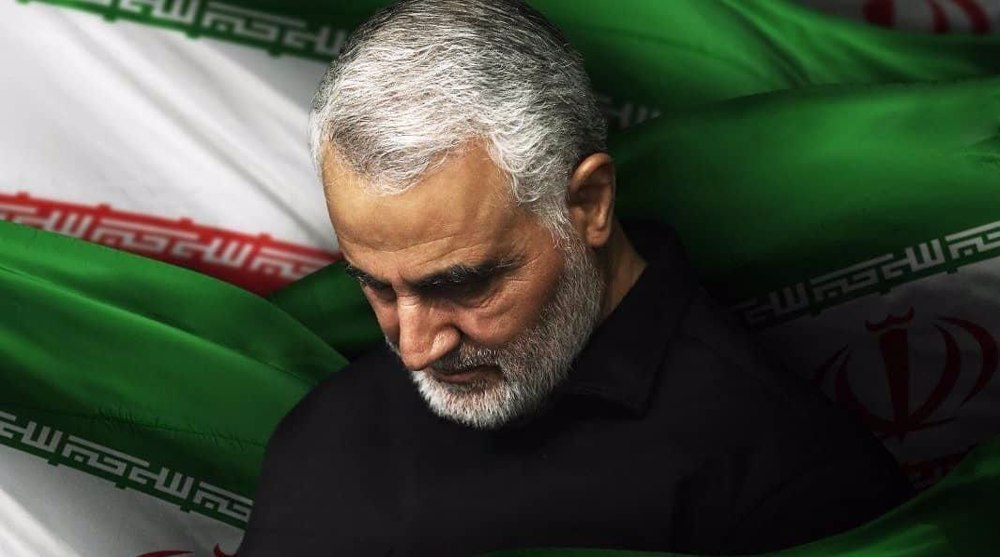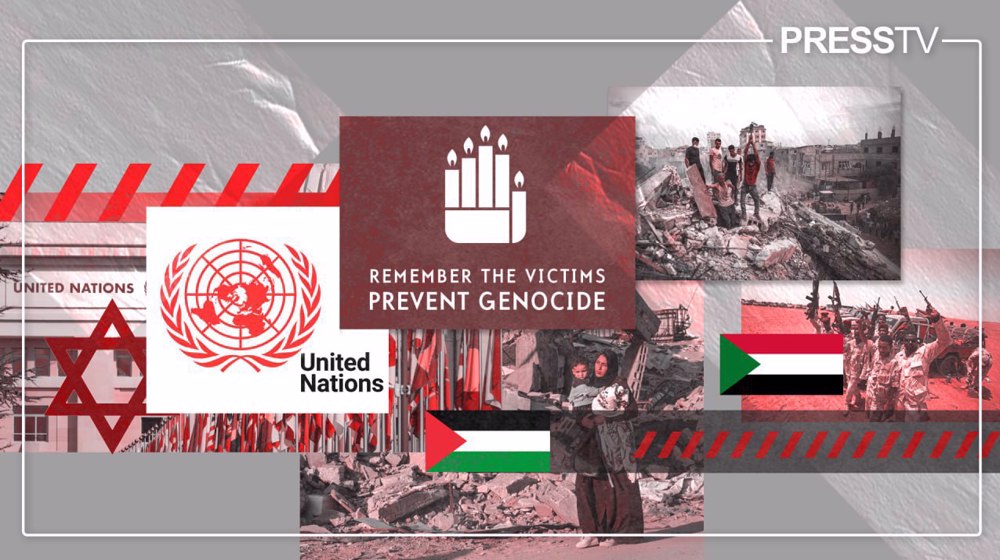Gen. Soleimani as initiator of Iran's rapprochement with Saudis, Emiratis
By Xavier Villar
The mainstream media coverage of the agreement between the Islamic Republic of Iran and the Kingdom of Saudi Arabia to restore diplomatic ties after seven years is missing a key element - the instrumental role of General Qassem Soleimani to make it happen.
Former Iraqi Prime Minister Adel Abdul-Mahdi in a recent article threw light on the top anti-terror commander's behind-the-scenes role in pushing the peace deal between Tehran and Riyadh, but it has not received the necessary attention.
General Soleimani was tirelessly mediating to try to achieve a diplomatic breakthrough with both the Saudis as well as the Emiratis, both of whom severed ties with Tehran after the execution of top Saudi Shia cleric Sheikh Nimr al-Nimr in 2016.
It was this mediation that led to his assassination by the Trump administration in Baghdad in January 2020. The cowardly crime was an attempt to prevent a diplomatic resolution of regional conflicts.
According to Press TV's 2020 article, the New York Times revealed that General Soleimani met with Emirati authorities at least once in September 2020 to broker peace.
Once the Americans learned of the meeting, "alarms sounded inside the White House," as reported by the NYT.
During the same period, General Soleimani made serious efforts to reach a diplomatic agreement with Saudi Arabia with the mediation of Pakistan and Iraq, according to reports.
According to Abdul-Mahdi, General Soleimani had planned to meet with him formally during his trip to Baghdad in January 2002 to keep him informed about the negotiations with the Saudis.
The Iranian efforts, personified in the figure of General Soleimani, not only alarmed the Americans but shocked the Zionist regime too.
Zionists felt threatened by the top Iranian commander's diplomatic endeavors, which would have succeeded in forging intra-Islamic regional stability and dealt a blow to US hegemony.
That was ultimately accomplished thanks to Chinese mediation last week in Beijing.
The Ummatic vision, both of General Soleimani and the Islamic Republic, highlights one of the foundational principles of the 1979 Islamic Revolution: the call for unity among Muslims.
One of the basic characteristics of the Islamic Revolution, which was defined by Imam Khomeini, is its "post-mazhabi" stance, an attempt to bridge the gap between Sunnism and Shiism.
This quest for Islamic unity is vital to understand the self-representation of the Islamic Republic as the political home of all Muslims, a kind of great power capable of defending the entire Islamic community from Western attacks.
This search for Islamic unity is precisely what the United States, as well as the illegitimate Zionist entity, have been trying to disrupt since 1979.
An Islamic unity, with Iran as its political center, would mean the failure of Zionist and American political agendas, which have already been weakened as political discourses since the triumph of the Islamic Revolution and the subsequent creation of the Islamic Republic.
If the 1979 revolution was a revolution against the Eurocentric order that managed to dislocate pro-US hegemony in the region, General Soleimani's efforts to reach diplomatic agreements with Saudis and Emiratis were framed under the same anti-Eurocentric principles.
Therefore, it would be safe to suggest that General Soleimani's political efforts were in line with the revolutionary thought outlined by Imam Khomeini: the construction of an autonomous Muslim political identity, the relevance of the Ummah as a political horizon, and the need for Islam to be political because non-political Islam, as we can see in Saudi Arabia or Azerbaijan, is merely a ritual element with no capacity to change the world.
That was the threat that General Soleimani represented to the Western project - a project which also includes Zionism - and what ultimately cost him his life in Baghdad.
The great anti-terror commander exemplified the will to change the region in political terms. His project of change involved resisting the Western paradigm, which is a catastrophe in ontological terms.
In other words, the Western paradigm divides populations according to their different degrees of humanity. In this ontological pyramid, the top is occupied by Westerners and by all those forms of being that fall within the chain of equivalence "Western": secular, modern, liberal.
The rest of the beings, within this paradigm, are pushed out of the category of humans, an expulsion that favors the most diverse types of cruelties.
General Soleimani's attitude is the attitude of a "mostazafin" - the quintessential other of the West in Islamic contexts - who positions himself as an agent and thereby denies the aforementioned ontological pyramid created by the Western paradigm.
Western domination prevents the mostazafin from acquiring agency, preventing him from being an independent and autonomous political actor.
When General Soleimani emerges as a rebellious mostazafin, it costs him his life because the project of the mostazafin is a collective project in which the mostazafin see themselves capable, as political actors, of changing the world created and shaped by the West.
The project represented by the great martyr of resistance is a project to build another world, a world articulated around the language of Islam, but open to multiple solidarities that we can call extra-ummatic, such as Venezuela.
The Western paradigm tries to make it impossible for the mostazafin to be relevant in a political sense. This is achieved through a whole series of disciplining mechanisms.
Therefore, the efforts of General Soleimani were seen as a threat to this attempt to keep the mostazafin in the zone of "non-being".
General Soleimani laid the foundations for a new re-articulation of the Islamic revolution, an epistemic revolution whose main goal is to stop Western oppression over multiple others.
To continue the political path opened by General Soleimani means therefore to continue the path of decolonization, the path of political autonomy, and the path of opening the world to different forms of beings in it.
To conclude, can say that General Soleimani laid the ground for the current diplomatic agreement with the Saudis in a movement characterized by his political boldness and his indomitable will to change the region and the lives of people.
Recognizing his tireless work, which cost him his life, is another way of not forgetting his role as a rebellious mostazaf.
Xavier Villar is a Ph.D. in Islamic Studies and researcher who divides his time between Spain and Iran.
(The views expressed in this article are author's own and do not necessarily reflect those of Press TV)
Trump orders ‘total blockade’ of sanctioned oil tankers to and from Venezuela
VIDEO | Press TV's news headlines
Iran FM advises adversaries not to repeat past mistakes
VIDEO | The state of conflict in Ukraine
Venezuela protests to UN Security Council over US seizure of oil tanker
Iran reports sharp rise in household gas demand
OIC chief pledges support for Iran, hails Tehran's role in Islamic solidarity
BBC to fight $10bn Trump lawsuit over Panorama speech edit










 This makes it easy to access the Press TV website
This makes it easy to access the Press TV website